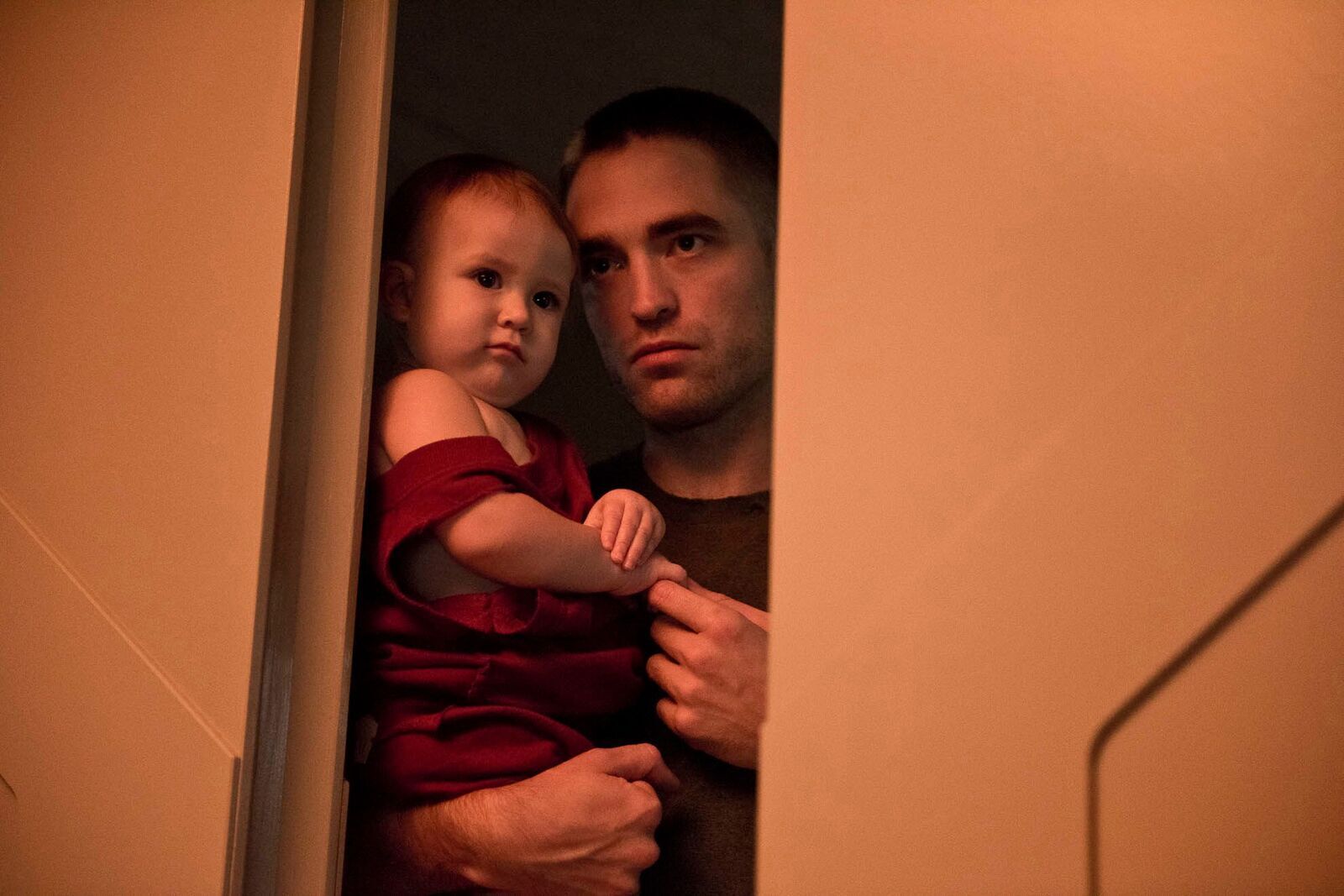That’s cruelty, says the daughter (Jessie Ross). Her father (Robert Pattinson) replies, What do you know about cruelty? He’s lived it. We’ve seen, deep in his past, he’s perpetrated it: a dog dead in a stream; a child bleeding into the earth. We’ve seen he’s later been the victim of it: one on a crew of death-row prisoners sent into space on a suicide science mission, a one-way state-sponsored ticket to a black hole with a fertility related side-mission. This has been his life. From what we see, cruelty is all he’s known. His daughter, however, had known only him. He’s been to her a man of patience and kindness, tender and hushed, cultivating a bright young woman and a verdant garden alone. Of the initial con-air space flight, the man and child are all that’s left, all that's life. They survive, and yet the man, especially, as the girl is an infant for most of the film, carries with him the knowledge that they’re a dead-end, drifting in solitude and silence to a black hole with no hope of long-term planning or furthering their humanity.
Because Claire Denis’ film is, in her typical style, hauntedly elliptical and vividly tactile, High Life accumulates hypnotic power from this scenario. She cuts between the isolation of man and child, and the steady decline of the mission that ultimately brought them to this loneliness. It can be sensual, even gross — a film of any and every fluid that can spring forth from the human body — yet within a sterile setting, with long clean corridors and crisp sci-fi suits and screens steadily splattered with the residue of its ensemble’s tensions. There’s a doctor (Juliette Binoche) who seems to be channeling penance for her infanticide past into an unethical attempt to force procreation amongst her fellow prisoners. There are men and women (Mia Goth, Andre Benjamin, Gloria Obianyo, Ewan Mitchell, Lars Eidinger) trying desperately to control their bodies to control their futures, to control their garden to control their environment, knowing that it might all be futile as they’re stuck with their urges in a box steadily shooting through the stars. It moves forward; they go nowhere. Silence can be overwhelming. Dissolves become decay. The film’s mood sits here—slow, upsetting, penetrating deep into the throbbing background hopelessness of it all, the fleshy needs and spiritual bankruptcy of its characters. Precariously balanced between new life and inevitable death, between hope and despair, between connection and separation, the movie ultimately builds to a breathtaking final sequence of shots—brilliantly simple, with a mesmeric and thematic power that lingers. It answers the questions raised about how to raise a new generation in the wake of our mistakes, and about whether it’s worth plunging forward into the unknown alongside them, with a startling clarity and beautiful ambiguity. There they go. Shall we follow?


No comments:
Post a Comment